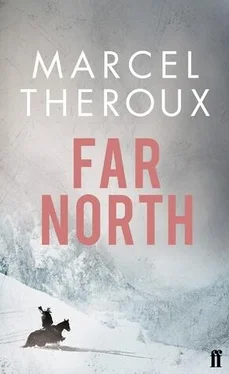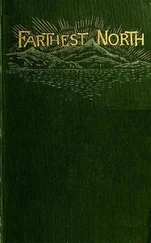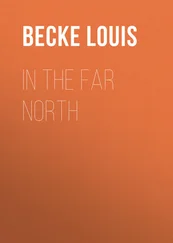Then a man called Michael Callard spoke up.
The Callards, Michael, Freya and their twins Eben and Liesl, were one of the settler families who had left their home further south. The Callards had arrived with almost nothing and had lived with us for a few months before Michael Callard put up a house of their own on the other side of Delamere Street. They were devout and hard-working, and well liked by the other settlers.
Eben and Liesl were eighteen. Liesl was shy and handsome like her mother. Eben farmed with his dad. He was proud of his strong shoulders and lean brown body. Sometimes after a day of work in summer, he would wander downtown and brave the midges with his shirt off. He was a good rider too, and once or twice we had raced ponies on the fields outside the city. A rumour found its way back to me that we were sweet on each other. But he had always struck me as ruthless and quick-tempered, and the truth is I have never liked a man who was too much like me.
Michael Callard spoke of how his farm in the south had been attacked by armed men, how they’d been rounded up at gunpoint and given an hour to leave. He said he, like the rest of us, had come here to live in a new way, free of the threat of violence, as equals. But he was damned if he thought that meant accepting the threat of being hounded out of his own home, or having his food taken, or his wife and children hurt. He called on the able-bodied of us to form and arm a militia to keep the streets safe, and eject or punish anyone who broke the codes of the town.
You could see that many were moved by his words, even those who had persuaded themselves that all forms of violence were wrong.
I watched my father as Michael Callard was speaking and I saw trouble flit across his face. I loved my father, but I was not like him. I never needed to believe the best of people. I took them as they were: two-faced, desperate, kind — perhaps all at once. But to pa, they were all children of god, poor troubled sheep, who only needed love and an even break. He needed the world to back up what his religion told him about people. And when it came down to a choice between reason and faith, he let go of his reason.
They held a vote that time, and my father carried the day, but that was the start of two factions in the town. The one, led by Callard, was warm for the militia and us getting armed to defend ourselves. The other, which looked upon my pa as its head, wanted us to stick to the original spirit of the settlement.
Thinking of my pa just now, I see something childish in his need for things to be perfect. He was a clumsy workman and could labour for days over something that would get tossed out if he marred it. A thing would be worthless if it wasn’t just so. And that childishness fed his intolerance of people. He loved ideas more than men because they were less contradictory. And pa sometimes seemed to be able to forgive a thief or a murderer more easily than he could forgive lateness or backtalk. Murder or theft was less troubling because wholly bad. Variety and contradiction bothered him. He was like the god of the Methodists — one word could put you out of the Elect for ever.
I think in his love for the arctic you see the same hunger for simple truths: sky, snow, mountain, trees. What I found in a city — when I finally saw a real one — was disquieting. Nothing matched. It was a weird assemblage of things, but there was beauty in the oddness of it, and the thought that it was all man’s doing.
But the doctrine my father chose, like our landscape, had a crystal order to it: peace, self-reliance, love, submission to the will of god. The simple shape of it had a power to persuade. People were drawn to him. The force of his conviction made them trust him.
It puts me in mind of a piece of block ice, with its glassy sides shirred from the saw-teeth. When you melt one for water, for the longest time the block stays perfect. It just sighs and shrinks a little. But as soon as the heat finds out a bubble of air in it, it swells and bursts the whole thing into tiny pieces.
That year was one in a cluster of hot summers. The city was splitting at the seams like a fat man in his wedding suit — so many incomers, Quaker people and others, pouring up out of the scorched south, fleeing the famines. There had been squabbles all through July — people filching food from gardens, or squatting empty properties and refusing to go. And as it turned out, what happened to me was the tinder that set the haystack blazing.
Callard and Tumilty put their militia together, with weapons they bought off the incomers themselves in spite of the vote going against them.
The settlers who opposed them, which was the majority, led by my father, dogged them throughout the summer, followed their patrols shouting and ringing bells, and sat down in the streets so their horses couldn’t pass.
Over the coming weeks, the arguments went on, in the meeting houses, in stores, on the sidewalks, and between husbands and wives at dinner tables. Family by family, people were won over to Callard’s side. In our house, I was the cuckoo who spoke up against my own father. I had a simpler notion of right than he did. I think I was relieved when Michael Callard spoke: he gave voice to feelings I had had all my life. I said if someone slapped my face, I slapped back, no matter what the Bible said. My father went thinlipped with disapproval and ordered me up to my room. He felt the mood going against him in the town, and it was too much to have mutiny at his own table.
Those weeks were the worst I ever got on with him. The pressure he was under made him angry and bitter. He raged at Callard. He still had support among the settlers, but day by day it was ebbing away from him, and it didn’t take a wild leap of the imagination to foresee a day when he stood alone. He was losing authority and he was losing the city that he had struggled to build. He warned anyone that would listen what would happen if we followed Callard, but the number who would listen grew smaller and smaller every hour.
What had started out as a quarrel over interpreting our laws was turning into a straight fight for the mastery of the city.
In late August, my mother and father left the city for a few days. He liked to hunt and fish and took her when he could for company. Whenever they went away together I would sneak into their room to sleep. I loved their deep mattress and the jingling bed-frame they had brought from America.
Past midnight I heard the door open and the sound of breathing. I called out Charlo’s name. It was half a dozen men with pillowcases over their heads.
They had holes cut out for their eyes and mouths. There was froth on their lips as they shouted names at me.
I ran to the window to jump but they dragged me off it. Two of them held me down on the bed. I wriggled a hand free and slashed at my attacker with a water-glass. ‘Jezebel,’ he said. I felt something wet on my face and I thought he had cut me, but it was lye they’d picked up from our kitchen.
The mind is merciful in what it leaves you with. I don’t remember much of what followed and less still of the aftermath, but they left me alive for my parents to find, and apparently I told them Eben Callard had been the leader.
I’ve since wondered how I knew — and even why he would have done such a thing — but the years have taught me not to wonder too much at the dark things men do. Strange how it is that men never act crueller than when they’re fighting for the sake of an idea. We’ve been killing since Cain over who stands closer to god. It seems to me that cruelty is just in the way of things. You drive yourself mad if you take it all personal. Those who hurt you don’t have the power over you they would like. That’s why they do what they do. And I’m not going to give them that power now. But it was a cruel thing that they did, and when they had finished hurting me, a splinter of loneliness seemed to break off and stay inside me for ever. Nowadays, I don’t think of it much, but I can never hear the bed-frame jingling without a sense of disquiet.
Читать дальше












